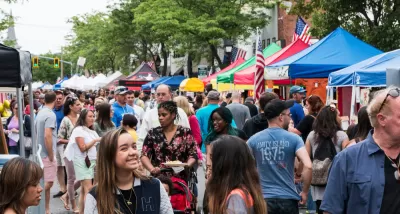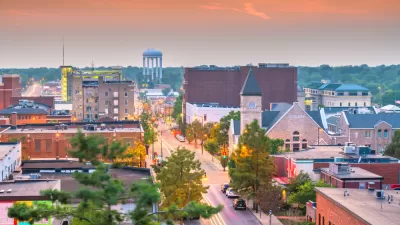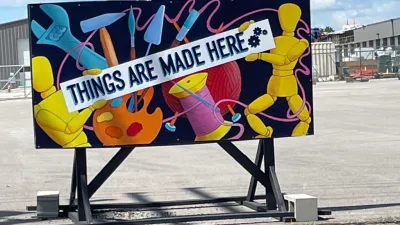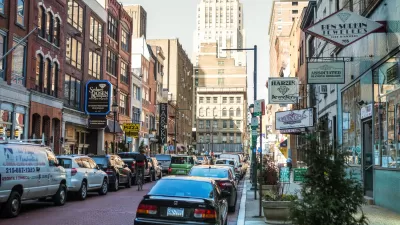Attracting a major employer or a tech company is not the only economic development strategy that deserves attention and investment.

When community leaders in Columbia, Missouri, first set out to revitalize The Loop, the prospects felt daunting. This stretch of Highway 40 serves as the entrance to Columbia but has been neglected for decades. Local small businesses were few, and struggling.
Leaders organized conversations with neighbors to understand what types of businesses were currently in the region, what the community wanted, and how this effort could contribute to broader city priorities. They soon learned that one particular type of business held an uncommonly powerful potential to support transformation.
Small-scale manufacturers like Claysville Creations and Heartland Soapworks were selling products online as well as in retail spaces, creating jobs, and — most crucially — attracting visitors who want to buy products right where they’re made. The project team realized these would be perfect businesses to be among the first to build a destination in The Loop. Because they sell online, they don’t depend on foot traffic, but still create a reason for people to visit and stay awhile.
Small-scale manufacturers produce anything from textiles to hardware to beer or coffee and more. Unlike large manufacturers, they fit into relatively small square footage and are clean, quiet neighbors. They are well-positioned to compete in the digital economy, but also fill storefronts and contribute to a thriving downtown or business district. They create jobs at a variety of skill levels, and it’s often women, immigrants, and Black, Latino or other business owners of color at their helm. Many owners operate these businesses out of their homes or garages at first, so your neighborhood might be home to small-scale manufacturers already.
FULL STORY: An Overlooked Economic Powerhouse for Small Cities

Maui's Vacation Rental Debate Turns Ugly
Verbal attacks, misinformation campaigns and fistfights plague a high-stakes debate to convert thousands of vacation rentals into long-term housing.

Planetizen Federal Action Tracker
A weekly monitor of how Trump’s orders and actions are impacting planners and planning in America.

In Urban Planning, AI Prompting Could be the New Design Thinking
Creativity has long been key to great urban design. What if we see AI as our new creative partner?

How Trump's HUD Budget Proposal Would Harm Homelessness Response
Experts say the change to the HUD budget would make it more difficult to identify people who are homeless and connect them with services, and to prevent homelessness.

The Vast Potential of the Right-of-Way
One writer argues that the space between two building faces is the most important element of the built environment.

Florida Seniors Face Rising Homelessness Risk
High housing costs are pushing more seniors, many of them on a fixed income, into homelessness.
Urban Design for Planners 1: Software Tools
This six-course series explores essential urban design concepts using open source software and equips planners with the tools they need to participate fully in the urban design process.
Planning for Universal Design
Learn the tools for implementing Universal Design in planning regulations.
Gallatin County Department of Planning & Community Development
Heyer Gruel & Associates PA
JM Goldson LLC
City of Camden Redevelopment Agency
City of Astoria
Transportation Research & Education Center (TREC) at Portland State University
Jefferson Parish Government
Camden Redevelopment Agency
City of Claremont





























